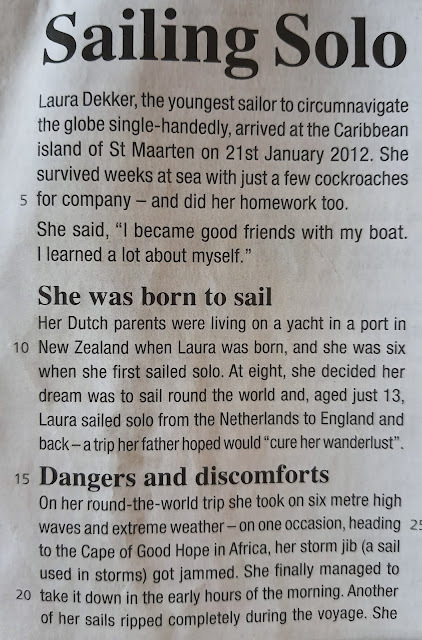Grammar: Commas in Complex Sentences (Monday; 1/3) (Tuesday; 2/3)

K: Know what a non-defining clause is. U: Understand what an appositive is. D: Place the commas to its proper sentence placement. Words of the Day 1. Commas 2. Complex sentence Commas in Complex Sentence Please refer to textbook, page 89. Non-defining relative clauses give us extra information about someone or something. It isn't essential for understanding who or what we are talking about. 1. My grandfather , who's 87, goes swimming every day. 2. The house , which was built in 1883, has just been opened to the public. 3. The award was given to Sara , whose short story impressed the judges . An appositive is a noun or noun phrase that renames the noun next to it. For example, if you said, "The boy raced ahead to the finish line," adding an appositive could result in "The boy, an avid sprinter , raced ahead to the finish line." The sentence is still complete without the appositive; however, adding the appositive presents more information abo...







